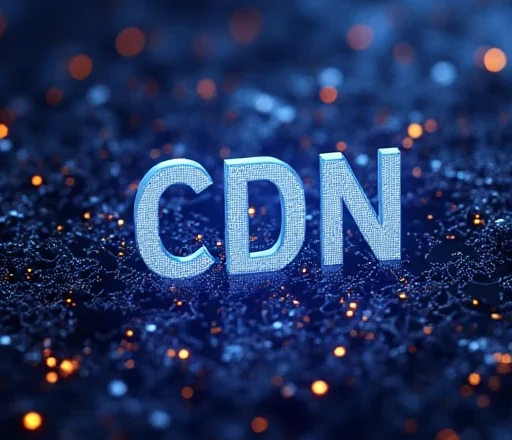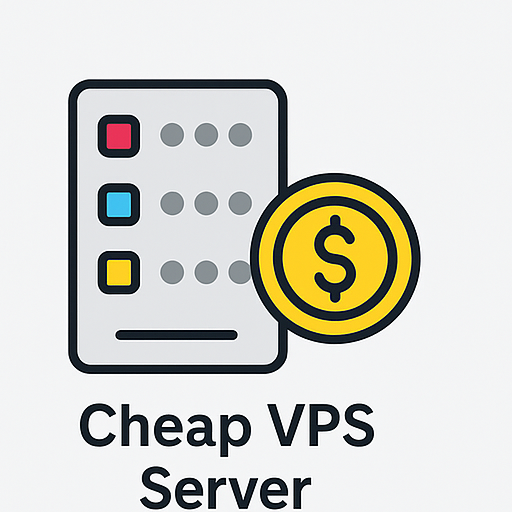
What is a CDN? Understanding Content Delivery Networks
А Content Delivery Network (CDN) is a geographically distributed network of servers designed to deliver web content more efficiently to users based on their location. The core goal of a CDN is to reduce latency, increase speed, enhance availability, and provide better security for web applications.
How Does a CDN Work?
When a user requests a website, instead of connecting directly to the origin server (which might be far away), the request is routed to the nearest CDN server (also known as an edge server). This edge server delivers cached content such as images, CSS, JavaScript, and videos, drastically reducing load times and server strain.

Нужен доступный облачный VPS
Облачная мощность с полным управлением
For example, if your website is hosted in Germany and a user from Australia accesses it, instead of retrieving content from Germany, the content is served from the nearest CDN node in Australia.
Why Use a CDN?
- Faster Load Times: Content is delivered from the nearest server to the user.
- Better Security: CDNs provide DDoS protection, masking origin IPs and handling massive traffic.
- Increased Availability: Traffic is balanced across multiple servers, minimizing downtime.
- Reduced Bandwidth Costs: Less load on origin servers, reducing bandwidth usage.
- Improved SEO and User Experience: Faster websites rank higher and reduce bounce rates.
Types of CDNs
| CDN Type | Description | Use Case |
|---|---|---|
| Multi-Purpose CDN | Supports both static and dynamic content | General websites |
| Dynamic CDN | Optimized for dynamic content | Large e-commerce, apps |
| Static CDN | Designed for static files only | Media-heavy sites |
Key CDN Providers
- Cloudflare (global reach, free plan)
- Amazon CloudFront
- Google Cloud CDN
- CDN77
- Akamai
CDN Use Cases
- News and media sites
- Online stores (eCommerce)
- Streaming platforms
- High-traffic blogs
- SaaS applications
How CDN Enhances Security
- DDoS mitigation
- Web Application Firewall (WAF)
- TLS/SSL encryption support
- Hiding real IP addresses of origin servers
CDN in Practice
When a visitor accesses your website:
- Request is routed to the closest edge server.
- Cached content is served instantly.
- If content isn’t cached, the CDN fetches it from the origin server.
- The CDN then caches this content for future requests.
CDN Benefits Summary
- Производительность: Faster content delivery
- Reliability: Redundant servers prevent downtime
- Масштабируемость: Handles high traffic spikes
- Безопасность: Blocks malicious traffic
Are There Any Drawbacks?
While CDNs offer numerous advantages, there are some considerations:
- Расходы: Enterprise features may require paid plans
- Setup Complexity: May need DNS configuration and fine-tuning
- Caching Issues: Might require purge or versioning for updated content
Free vs Paid CDNs
| Особенность | Free CDN | Paid CDN |
|---|---|---|
| Basic Caching | ✅ | ✅ |
| Защита от DDoS | ✅ | ✅ (Advanced) |
| Custom SSL | ❌ | ✅ |
| WAF | ❌ | ✅ |
| Analytics | Limited | Full access |
Popular free CDN options:
- Cloudflare (free plan)
- Jetpack (WordPress CDN)
- jsDelivr (for open-source projects)
Заключение
CDNs are vital tools in modern web infrastructure. They help accelerate websites, ensure consistent availability, and provide a strong defense against cyber threats. Whether you’re running a small blog or a global web app, implementing a CDN is a strategic move to enhance performance, SEO, and user experience.
Have questions about CDN integration or which provider suits your site best? Drop them in the comments!

Нужен доступный облачный VPS
Облачная мощность с полным управлением
